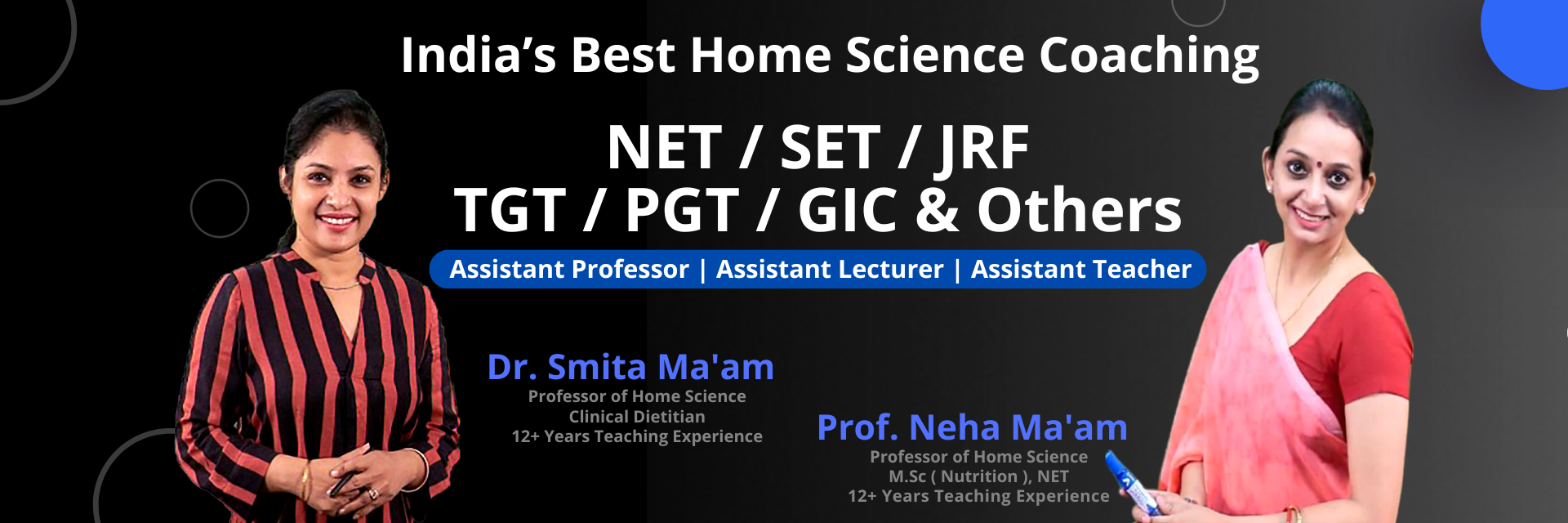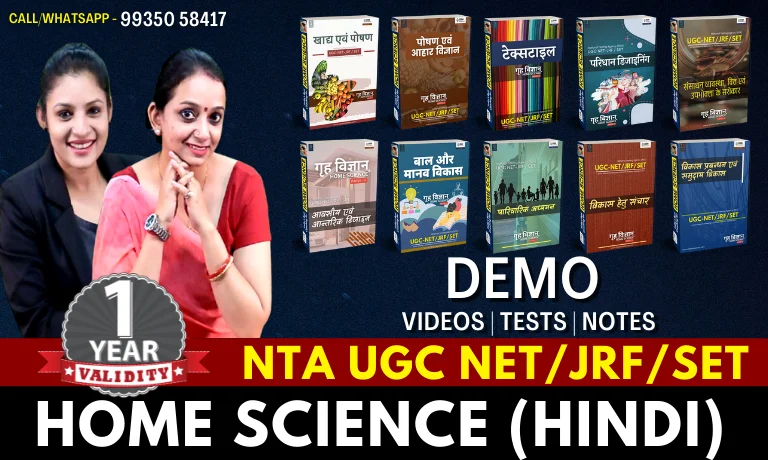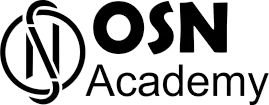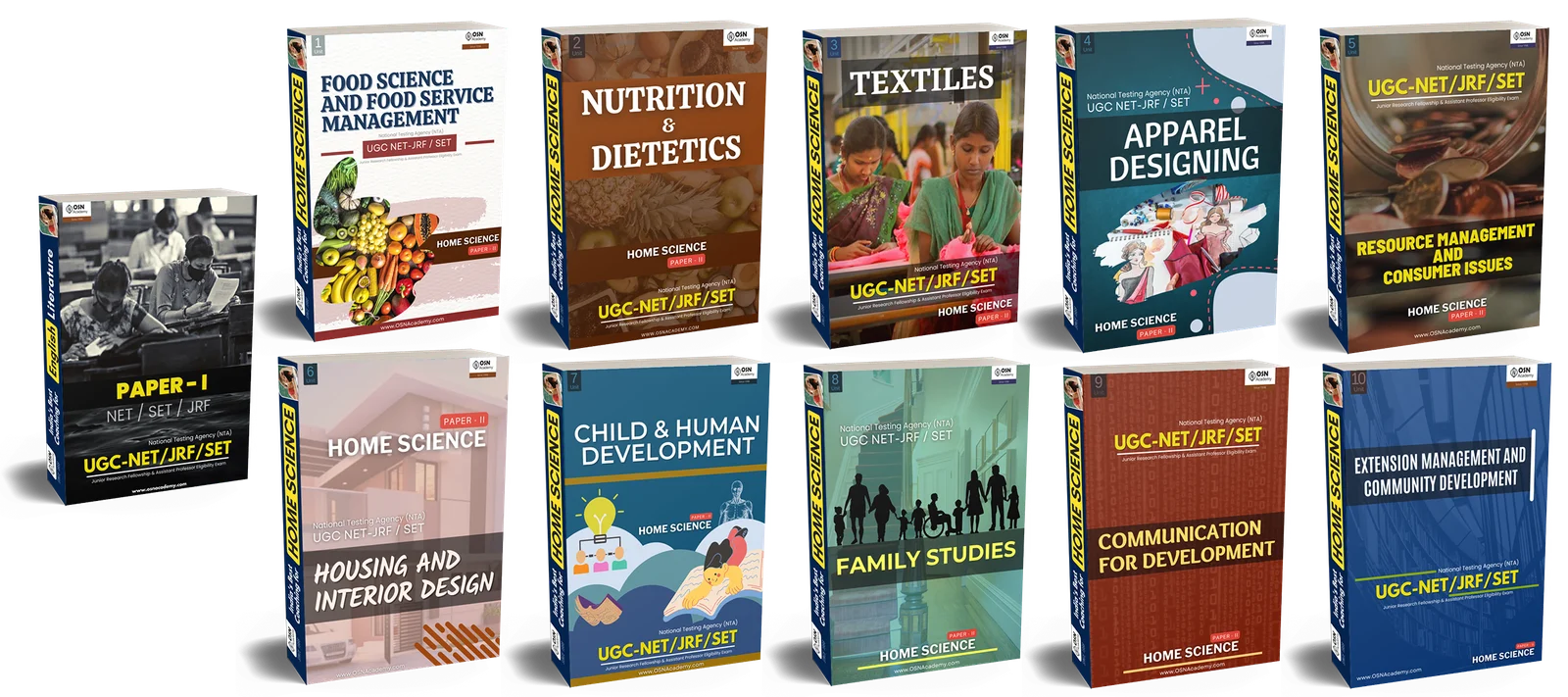

14526 +

12+
Ex Govt Professors

1200+

410

1600 +

24 x 7
UGC NET Home Science (English Medium)
Past Year Papers
Past year exam papers help you understand the exam pattern, identify important topics, and improve time management and confidence through practice.
01: Cereals – Food Group
Demo – UNIT 2 – Nutrition & Dietetics – UGC NET Home Science (English)
02: Properties of Food
Unit-1
03: Quality Evaluation of Foods
Unit-1

Know Before You Go
Highlights of This Course
- Best quality video lectures
- High-quality PDFs & revision notes
- Covers all topics of UGC NET Paper 2
- Based on New UGC NET Syllabus
- Explanation in easy language for quick comprehension
- 360 Degree Syllabus Coverage
- Mock Tests series as per latest exam pattern
- Practice through Previous years Solved Papers (2018 to 2023)
- Free Online Tests to know the weak topics and practice
- Free access to more than 3000+ relevant Questions
Most Selling Courses

Buy Now!

Buy Now!

Buy Now!

Buy Now!
The UGC NET Home Science course equips students with in-depth knowledge of food science, nutrition, and food service management. It explores the physical and chemical properties of food, food quality evaluation, and the effects of cooking and processing. The course also covers food safety standards, institutional food service management, and new technologies like nanotechnology in food development. In nutrition and dietetics, students learn about balanced diets, nutrient roles, public health nutrition, and dietary needs throughout the lifespan. The course emphasizes research methods, including design and ethical considerations, to prepare students for advanced research and professional roles in home science.
- Online Video Classes according to Latest Syllabus
- Precise PDFs / Notes on App
- Course Validity
- Test Series
- Offline Videos Download Option
- Compatible for MOBILE (iOS & Android), TABLET, DESKTOP & LAPTOP
- All the Key topics covered in the videos
- Best Technology used in OSN App for Smooth Video Streaming
- Videos are Easy to understand, Hassle-free retain the collaborative mode in videos to enhance the preparation.
- Buy Only Video Classes
- Buy Pure English Video Classes
- Buy Bilingual Video Classes (Hindi Eng Mix)
- Buy Only Books (Study Material)
- Buy Combo Class + Books (Discounted Price)
Flexibility: Learn at your own pace and on your own schedule, accommodating personal and professional commitments.
Accessibility: Access course materials from anywhere in the world with an internet connection, eliminating geographical barriers.
Cost-Effectiveness: Often more affordable than traditional in-person courses, reducing expenses related to travel, accommodation, and materials.
Variety of Options: Wide range of courses available across various subjects, providing numerous choices to suit individual career goals.
Self-Paced Learning: Ability to control the speed of learning, allowing for deeper understanding and review of challenging concepts.
Diverse Learning Materials: Utilize online videos, interactive simulations, and online quizzes to enhance learning.
Personalized Experience: online courses offer adaptive learning technologies that cater to individual learning styles and needs.
Convenience: Access to coursework and resources 24/7, fitting learning into busy schedules.
No Commuting: Save time and money by eliminating the need to travel to a physical location.
Updated Content: Access to up-to-date information and resources, often reflecting the latest trends and advancements in the field.
Reduced Pressure: Learn in a less formal environment, which can reduce stress and increase comfort for some learners.
Innovative Teaching Methods: Benefit from cutting-edge educational technologies and methodologies that may not be available in traditional settings.
UGC NET Home Science (English Medium)
UNIT-I: Food Science and Food Service Management
1. Food science and nutrition.
2. Properties of food – physical and chemical properties
3. Quality evaluation of foods- objectives and subjective.
4. Effects of cooking and processing techniques on nutritional components and other physical parameters, food preservation and application.
5. Food pigments and additives.
6. Food standards, microbiological safety of food, HACCP, food packaging.
7. Perspectives of food service-menu planning, food cost analysis.
8. New product development – nano technology
9. Food service management of institutional level-hospital, educational institutions, social and special institutions
10. Research methods-fundamental issues, concept, need relevance, scope and ethics in research
UNIT-II : NUTRITION AND DIETETICS
1. Food groups – balanced diet, food pyramid, macro and micro nutrition.
2. Nutrients-role of nutrients in the body, nutrient deficiencies and requirements for Indians.
3. Public health nutrition
4. Nutrition through life span-physiological changes, growth and development from conception to adolescence, nutritional needs and dietary guidelines for adequate nutrition through life cycle, nutrition concerns.
5. Community nutrition, sports nutrition, nutrition in emergencies and disasters.
6. Nutritional assessment-methods and techniques.
7. Nutritional intervention-national nutrition policies and programmes, food and nutrition security.
8. Clinical and therapeutic nutrition.
9. Diet counseling and management.
10. Research methods- research designs, principles and purpose of research
Unit-III : TEXTILES
1. Textile terminologies- fibre, yarn, weave, fabric etc., classification of fibers, yarns and weaves, Identification of fibres and weaves.
2. Manufacturing process of major natural and manmade fibres, properties and their end uses.
3. Different methods of fabric construction-woven, knitted and non woven fabrics, their properties and end uses.
4. Textiles finishes-classification, processing and purposes of finishes.
5. Dyeing and printing-classification, method of block printing, tie and dye, batik, roller printing, screen printing, discharge, heat transfer printing and digitized printing.
6. Traditional textiles of India-embroidered textiles, printed textiles, woven textiles, dyed textiles of various regions in India. Identification on the basis of fibre content, technique, motif, colour and designed.
7. Textile Testing and quality control-need of testing, sampling method, techniques of testing fibres, yarn, fabrics and garments. Testing of colour-fastness, shrinkage, pilling and GSM of fabrics.
8. Textile and environment-banned dyes, eco-friendly textiles, contamination and effluent treatment, Eco-label and eco marks.
9. Recent developments in textiles and apparels- nano textiles, technical textiles, occupational clothing, zero waste designing, up cycling and recycling.
10. Research methods-types of research, descriptive, survey, historical, qualitative, quantitative, analytical and action research.
UNIT-IV : APPAREL DESIGNING
1. Body measurements-procedure, need, figure types and anthropometry.
2. Equipments and tools used for manufacturing garments-advancements and attachments used for sewing machine. Types of machines used and their parts.
3. Elements and principles of design and its application to apparel. Illustrations and parts of garments.
4. Fashion-Terminologies, fashion cycle, fashion theories, fashion adoption, fashion forecasting and factors affecting fashion.
5. Pattern making-drafting, draping and flat pattern making techniques, pattern alteration and dart manipulation techniques.
6. Apparel manufacturing-terminology used, seams, techniques and machines used, process of fabric to apparel manufacture.
7. Apparel Quality testing-Quality standards and specification, Quality parameters and defects of fabrics and garments.
8. Care and maintenance of clothing-principles of washing, laundry agents, storage techniques case labels and symbols.
9. Selection of clothing for different age groups. Selection of fabrics for different and uses.
10. Research methods-hypothesis testing, types and scope
UNIT-V : RESOURCE MANAGEMENT AND CONSUMER ISSUES
1. Management-concept, approaches, management of time, energy, money, space, motivating factors, motivation theories, decision making.
2. Functions of management-planning, supervision, controlling, organizing, evaluation, family life cycle-stages, availability and use of resources.
3. Resources-classification, characteristics, factors affecting use, resource conservation, time management, work simplification techniques, classes of change, fatigue and its management.
4. Management of natural resources-land, forest, water, air, water harvesting, municipal solid waste management, concept of sustainable development, SDGs.
5. Money management-family income, types, supplementation, budgeting, household accounts, family savings and investment, tax implications.
6. Human resource management- functions, need, human resource developmentchallenges, functions, manpower planning, training need assessment, training methodologies, training evaluation.
7. Consumer-definition, role, rights and responsibilities, consumer behavior, consumer problems, education and empowerment.
8. Consumer protection- consumer organization, cooperatives, alternative redressal, standardization, standard marks, quality control, buying aids, consumer legislation.
9. Entrepreneurship-concept, process, barriers, entrepreneurial motivation, challenges, enterprise setting, project planning and appraisal, enterprise management.
10. Research methods-sampling techniques, types of sampling, sampling procedures, probability and non probability sampling.
UNIT-VI : HOUSING AND INTERIOR DESIGN
1. Design fundamentals – elements of art, principles of design, principles of composition.
2. Colour – dimensions of colour, psychological effects of colour, colour schemes, factors affecting use of colour.
3. Space planning and design-housing need and important, principles of planning spaces, types of house plans, economy in construction, planning for different income groups.
4. Building regulations-norms and standards, zoning, housing for special groups and areas, housing finance.
5. Housing and environment- building materials- impact on environment, green rating systems, energy efficiency in buildings, energy auditing, indices of indoor comfort.
6. Energy as a resource- conventional and non- conventional sources, renewable /nonrenewable energy, energy management, national efforts on energy conservation.
7. Product design – design thinking process, diffusion and innovation, design communication, ergonomic considerations.
8. Ergonomics – significance, scope, anthropometry, man, machine, environment relationship, factors affecting physiological cost of work, body mechanics, functional design of work place, time and motion study, energy studies.
9. Furniture and furnishing – historical perspectives, architectural styles, contemporary tends, wall finishes, window and window treatments.
10. Research methods-selection and preparation of tools for data collectionquestionnaire, interview, observation, measuring scales, ranking and measurement, reliability and validity of tools
UNIT-VII : CHILD/HUMAN DEVELOPMENT
1. Principles of growth and development, care during pregnancy and pre-natal and neonatal development.
2. Theories of human development and behavior.
3. Early childhood care and education – activities to promote holistic development.
4. Influence of family, peers, school, community and culture on personality development.
5. Children and persons with special needs, care and support, special education, prevention of disabilities, rehabilitation.
6. Children at risk-child labour, street children, children of destitute, orphans, child abuse and trafficking.
7. Adolescence and youth: changes, challenges and programs to promote optimal development.
8. Adulthood, characteristics, changing roles and responsibilities in early and middle adulthood.
9. Aging-physical and psychological changes and care needs.
10. Research methods-types of variables and their selection.
UNIT-VIII : FAMILY STUDIES
1. Dynamics of marriage and family relationships.
2. Family welfare-approaches, programmes and challenges, role in national development.
3. Domestic violence, marital disharmony, conflict, resolution of conflict.
4. Parent education, positive parenting, community education.
5. Family disorganization, single parent families.
6. Family studies-family in crisis, family therapy, initiatives for child development.
7. Human rights, rights of children, rights of women, status of women, gender roles.
8. Guidance and counseling- across life span and for care givers.
9. Health and well being across life span development.
10. Research methods- data collection and classification, coding, tabulation, inferential and descriptive statistics.
UNIT-IX : COMMUNICATION FOR DEVELOPMENT
1. Basics of communication- nature, characteristics, functions, process, models, elements, principles, barriers, perception, persuasion and empathy, types of communication, levels (settings) of communication transactions, process of listening.
2. Communication systems and communication theories- human interaction theories, mass communication theories, message design theories, communication systems, culture and communication.
3. Concept of development- theories, models, measurement and indicators of development.
4. Concept of development- communication models and approaches, diffusion and innovation, mass media, social marketing.
5. Role of communication in development- need and importance, development journalism, writing for development-print, radio, television and internet.
6. Concerns of development communication- gender, health, environment, sustainability, human rights, population, literacy, rural and tribal development.
7. Advocacy and behavior change communication- concept, theories, models, approaches, application and challenges.
8. Traditional, modern and new media for development – folk forms of songs, art, dance, theatre, puppetry, advertisement, cinema, ICTs for development-community radio, participatory video, social media and mobile phones.
9. Organisation/agencies/institutes working for development communicationinternational/national/state and local.
10. Research methods-analysis of data through parametric and non parametric tests.
UNIT-X : EXTENSION MANAGEMENT AND COMMUNITY DEVELOPMENT
1. Historical perspectives of extension–genesis of extension education and extension systems in India and other countries, objectives of extension education and extension service, philosophy and principles of extension programme development.
2. Programme management- need assessment, situation analysis, planning, organization, implementation, monitoring and evaluation.
3. Extension methods and materials- interpersonal, small and large group methods, audiovisual aids-need, importance, planning, classification, preparation and field testing, use and evaluation of audio-visual materials.
4. Curriculum development and planning for extension education and development activities, Bloom’s taxonomy of educational objectives and learning.
5. Non-Formal, adult and lifelong education-historical perspectives, concept, theories, approaches, scope, methods and materials used, challenges of implementation and evaluation, issues to be addressed.
6. Training, skill development and capacity building for human resource developmentmethods of training, entrepreneurship development.
7. Community development- perspectives, approaches, community organization, leadership, support structures for community development, Panchyati raj institutions, NGOs and community based organisations.
8. People’s participation and stakeholders’ perspectives, Participatory Learning and Action-methods and techniques.
9. Development programmes in India for urban, rural and tribal population groupsprogrammes for nutrition, health, education, wage and self employment, women’s development, skill development, sanitation and infrastructure.
10. Research methods-scientific report writing, presentation of data, interpretation and discussion.
UGC NET Home Science (English) Course Syllabus
Module 04 – Logical Reasoning
- Lesson 01 - Introduction
- Lesson 02 - Objectives of Teaching
- Lesson 03 - Nature & Characteristics of Teaching
- Lesson 04 - Characteristics Of Good Teacher (Part 1)
- Lesson 05 - Characteristics Of Good Teacher (Part 2)
Unit-III : TEXTILES
- Lec 1-Textile Terminology
- Lec 2-Processing And Manufacturing of Fibres
- Lec 3-PROTEIN FIBRES & WOOL, Silk
- Lec 4-Man Made Cellulosic Fibres
- Lec 5-Fabric Construction
UNIT-II : NUTRITION AND DIETETICS
- Lec 1-Intro of Food Group
- Lec 2-Cereals
- Lec 3-Milk and Its Products
- Lec 4-Pulses
- Lec 5-Vegatables and Fruits
UNIT-I : FOOD SCIENCE AND FOOD SERVICE
- Lec 1-Food Science and Nutrition
- Lec 2-Properties of Food
- Lec 3 -Quality Evaluation of Foods
- Lec 4 -Effect of Cooking And Processing
- Lec 5 -Effect of Cooking on Various Nutrients, Food Preservation
Very simple and interesting way of teaching style. Clear all douts. Help in ours prepration. Best app for ugc net prepration (Home Science) This app help me lots and i qualified Net and also improve my knowledge and confidence. Thanks 🙏🙏 to all members of this app.
I really wanna say that sir your videos give me good vibes and make me feel confidence for my Exam because I am preparing for my IAS Mains English Literature optional…………..I wish to clear it in my👉 first attempt. I really like your way to understand and your teaching ability is super se bhi uper.
Recently in Feb 2022 I have joined osn as student I am preparing for upsc civil service exam and my optional is literature of English I personally feel it is very good for students to study with osn especially in online mode in which I have enrolled the apps is too smooth to use and it is very helpful for students like me to go through by there online uploads videos and time to time sir himself comes live to boost preparation. So aspirant like me very much satisfied with osn and Dr.A Agrawal sir
Osn Academy is the best educational institute for me. I have been reading and preparing ugc net exam since 2021 . This is a unique educational platform to help us everytime. We have available unit 1 to 11 notes. These hard copies study materials are helping to understand easily English Literature . Thank you sir 🙏ji.
It’s really best place to achieve success in competitive exams. Sir started crash course of English for NET exam, which is highly beneficial for the scholars like me. Very minute and micro things are interpreted by guide, and it’s really cherish for any other scholars who are in search of right place for guidance. I’m thankful to OSN Academy Crash Course
F.A.Qs
Frequently asked questions
A1: Candidates should have a Master’s degree in Home Science/ related fields (Food Science, Nutrition, Textile Science, etc.) with at least 55% marks.
A2: The exam consists of two papers: Paper I (General Paper on Teaching and Research Aptitude) and Paper II (Home Science).
A3:Paper II covers:
Food Science and Nutrition
Human Development and Family Studies
Textile Science and Apparel Designing
Extension Education and Communication
Home Management and Family Resource Management
Consumer Science and Consumer Protection
Health and Nutrition Education
Research Methodology in Home Scienc
A4:50 questions, all compulsory.
A5: 3 hours.
A6: No, there is no negative marking.
A7: Yes, candidates with degrees from recognized distance learning programs are eligible.
A8: Twice a year, in June and December.
View Pricing



